The Rot at the Heart of the Purdue Pharma Bankruptcy Case
The case against the makers of OxyContin is about a lot of things—above all the way wealthy people work the system to escape accountability.
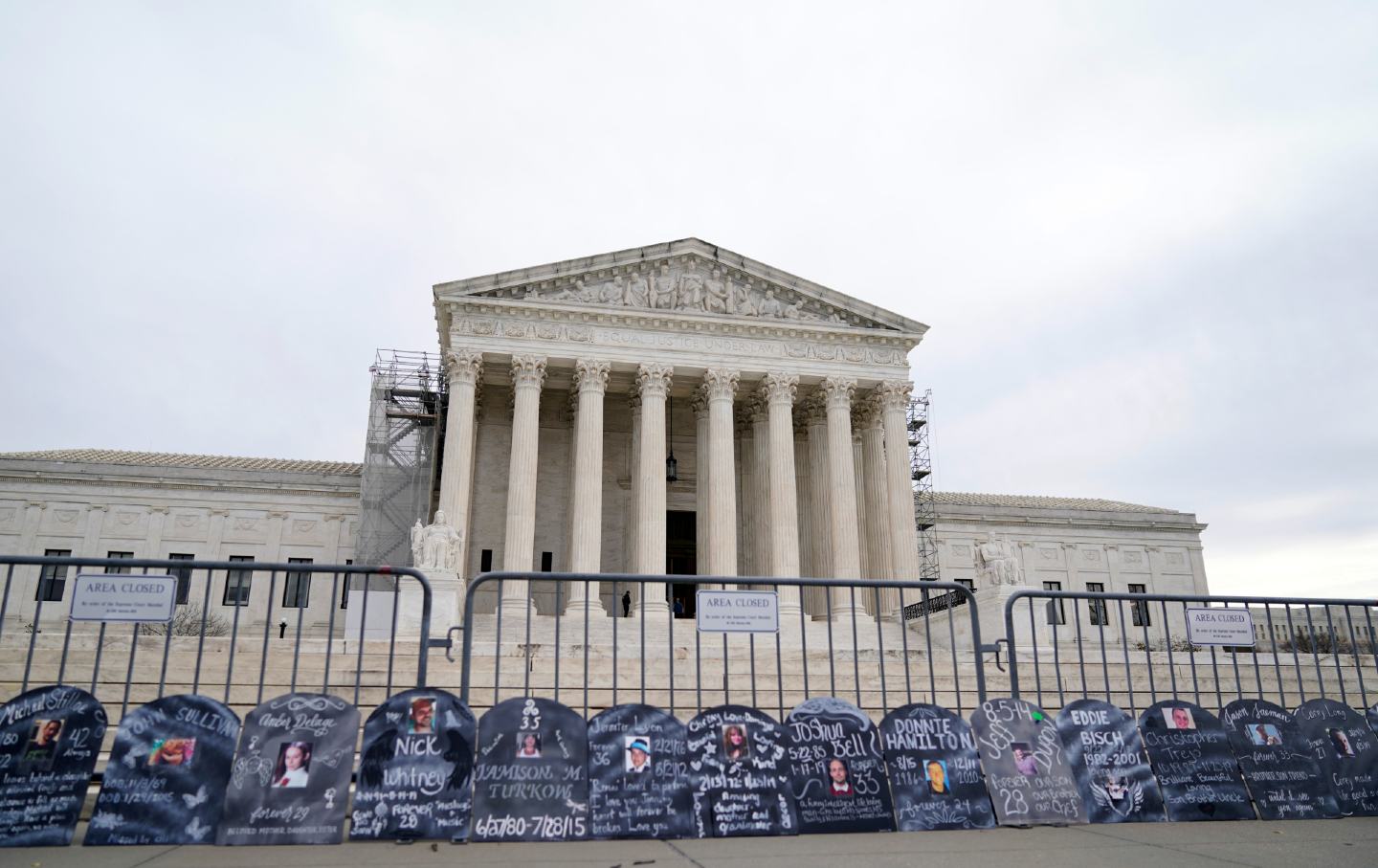
When a drug epidemic worms its way through Black communities, the Black victims of the drug get thrown in jail and lectured about personal responsibility and family values while the drug problem is used as an excuse to over-police our communities with the most brutal cops white people can find. When a drug epidemic worms its way through white communities, the white victims of the drug, evidently, get to sue the drug manufacturer in an attempt to hold them personally and financially responsible for their problems.
The years-long class action litigation against Purdue Pharma, makers of the opioid OxyContin, got its day in front of the Supreme Court on Monday. Legally, the case is about bankruptcy law. Morally, the case is about how many billions of dollars rich people can extract from their companies while shielding themselves from future legal and financial liability. But socially, every time Purdue Pharma scrolls across my feed, I can only think about how many Black people are in jail because they managed their pain with marijuana instead of a white-people-approved opioid. To me, this case will always be about the way the justice system treats Black drug addiction as a crime but white drug addiction as an “illness” and potential corporate fraud.
But let’s start with the law. Almost 30 years ago, Purdue Pharma started selling OxyContin, and it marketed the drug as relatively nonaddictive. OxyContin turned out to be highly addictive, leading to what many people called a public health crisis. Eventually, lawsuits flowed in, seeking literal trillions of dollars from Purdue Pharma and the Sackler family, who operated and principally owned Purdue Pharma, for fraud and deceptive marketing practices. Purdue Pharma declared bankruptcy in 2019, which put all the lawsuits on hold.
In 2021, a New York bankruptcy court confirmed a plan to reorganize Purdue Pharma into a nonprofit “devoted to addressing the public health problems created by the opioid epidemic.” The Sackler family (after some back and forth) agreed to contribute $6 billion toward the reorganization plan, which included a $750 million settlement with victims of the drug. Under the plan, victims would be eligible to receive between $3,500 and $48,000 for their suffering.
The problem is that, prior to declaring bankruptcy in 2019, members of the Sackler family had paid themselves around $11 billion from the company. Giving back only $6 billion of the $11 billion you made off with is a little underwhelming. Moreover, the $6 billion “contribution” came with one very big string attached: The bankruptcy settlement absolved the Sackler family from any future liability or litigation arising out of the OxyContin lawsuits. You could argue that they threw $6 billion on the ground to cover their escape with $5 billion.
That’s when the federal government got involved. The Department of Justice objected to the bankruptcy settlement and the liability shield it gave to the Sacklers. The question of whether the government has the right to object and challenge the bankruptcy settlement is at the heart of the case that went before the Supreme Court.
Legally, the case turns on a provision in the bankruptcy code that says that a reorganization plan can “include any other appropriate provision not inconsistent” with the overall bankruptcy law. The government argues that the liability shield given to the Sacklers is inappropriate or inconsistent with bankruptcy law; Purdue Pharma argues that it’s not.
Complicating matters is the fact that the victims are on the side of Purdue Pharma, and against the DOJ intervention, in this phase of the case. That’s because Purdue Pharma argues that without the settlement money from the Sacklers, which is contingent on letting the Sacklers off the liability hook, the victims will get nothing. That’s probably true. Purdue Pharma, the corporate entity, has no money. The DOJ might want to pursue further legal action against the Sacklers, but that won’t necessarily result in payments to the victims. Is there a chance that victims might be able to sue the Sacklers directly for fraud, and get some money out of them that way? Sure. But there’s only a chance. From the victims’ perspective, it’s $750 million now, while the Sacklers ride off into the sunset, or best of luck trying to chase the family through another decade’s worth of litigation.
At oral arguments, the Supreme Court sounded deeply conflicted about this case, but not at all along the normal ideological and partisan lines. Justices Neil Gorsuch and Ketanji Brown Jackson appeared most skeptical of Purdue Pharma’s arguments. (Gorsuch and Jackson agree about a lot of things, actually, except on crucial questions of whether Black people and women-people are people-people and deserving of rights, which accounts for most of their disagreements.) Jackson homed in on what I believe is the key issue: She said that the liability release was “necessary” only because “the Sacklers wouldn’t give the money back” without it. She was not buying that the Sacklers’ unwillingness to part with their cash makes their liability shield “appropriate” under the bankruptcy code.
On the other side, alleged attempted rapist Brett Kavanaugh was most sympathetic to Purdue Pharma’s case, but he made his case from the perspective of the victims who would likely be left with nothing should the settlement fall through. He was joined by Justice Elena Kagan, who couldn’t figure out why the government should intervene in the proceeding. She said that support for the settlement was “overwhelming…among people who have no love for the Sacklers, who pretty much think the Sacklers are the worst people on earth.”
I believe that Gorsuch and Jackson have the right argument, but I admit that my view is colored by the fact that Black victims of public health crises never seem to get a Supreme Court willing to bend over backward and create a bad precedent to make sure they receive compensation. Kavanaugh basically issued his own Hillbilly Elegy from the bench, figuratively rending his garments over the pain and suffering caused by opioids, and it really pissed me off. If this case involved a predominately Black class of drug users, Kavanaugh and people like him would be telling those “victims” to go jump in a lake.
If we take the victims and their need for $750 million to ease their pain out of the equation, what you have here is a family that is trying to warp the bankruptcy code in order to make off with $5 billion from a company they made bankrupt. That can’t be right. You can’t be allowed to extract $11 billion from a company, declare it bankrupt, and then only reluctantly agree to give $6 billion of it back if the government lets you keep the other five. That’s like a bank robber agreeing to release the hostages and take only what they can stuff in their pockets and briefcases, if the government promises to never press charges against them for robbing the bank.
Popular
“swipe left below to view more authors”Swipe →The precedent a ruling for Purdue Pharma would set for other companies is also disastrous. If the Sacklers get away with this, every other rich person in charge of a company going down the tubes would be incentivized to extract as much wealth as possible from their companies before the end, then use that money to bargain themselves out of legal liability for whatever they did wrong.
Will the victims of OxyContin get screwed if the DOJ is allowed to pursue the Sacklers to the fullest extent of the law? Yeah, probably. But at least the government isn’t looking to exacerbate their legitimate pain and suffering by treating them as criminals who should face a five-year mandatory minimum sentence for possession of five measly grams of whatever the wealthy drug dealers sold them.
But maybe I’m the wrong person to ask. I think the epidemic of wealthy people escaping accountability is the legal problem here. And I think simply not criminalizing drug abuse would do more social good than $750 million and another nonprofit entity ever could.
We cannot back down
We now confront a second Trump presidency.
There’s not a moment to lose. We must harness our fears, our grief, and yes, our anger, to resist the dangerous policies Donald Trump will unleash on our country. We rededicate ourselves to our role as journalists and writers of principle and conscience.
Today, we also steel ourselves for the fight ahead. It will demand a fearless spirit, an informed mind, wise analysis, and humane resistance. We face the enactment of Project 2025, a far-right supreme court, political authoritarianism, increasing inequality and record homelessness, a looming climate crisis, and conflicts abroad. The Nation will expose and propose, nurture investigative reporting, and stand together as a community to keep hope and possibility alive. The Nation’s work will continue—as it has in good and not-so-good times—to develop alternative ideas and visions, to deepen our mission of truth-telling and deep reporting, and to further solidarity in a nation divided.
Armed with a remarkable 160 years of bold, independent journalism, our mandate today remains the same as when abolitionists first founded The Nation—to uphold the principles of democracy and freedom, serve as a beacon through the darkest days of resistance, and to envision and struggle for a brighter future.
The day is dark, the forces arrayed are tenacious, but as the late Nation editorial board member Toni Morrison wrote “No! This is precisely the time when artists go to work. There is no time for despair, no place for self-pity, no need for silence, no room for fear. We speak, we write, we do language. That is how civilizations heal.”
I urge you to stand with The Nation and donate today.
Onwards,
Katrina vanden Heuvel
Editorial Director and Publisher, The Nation
More from The Nation
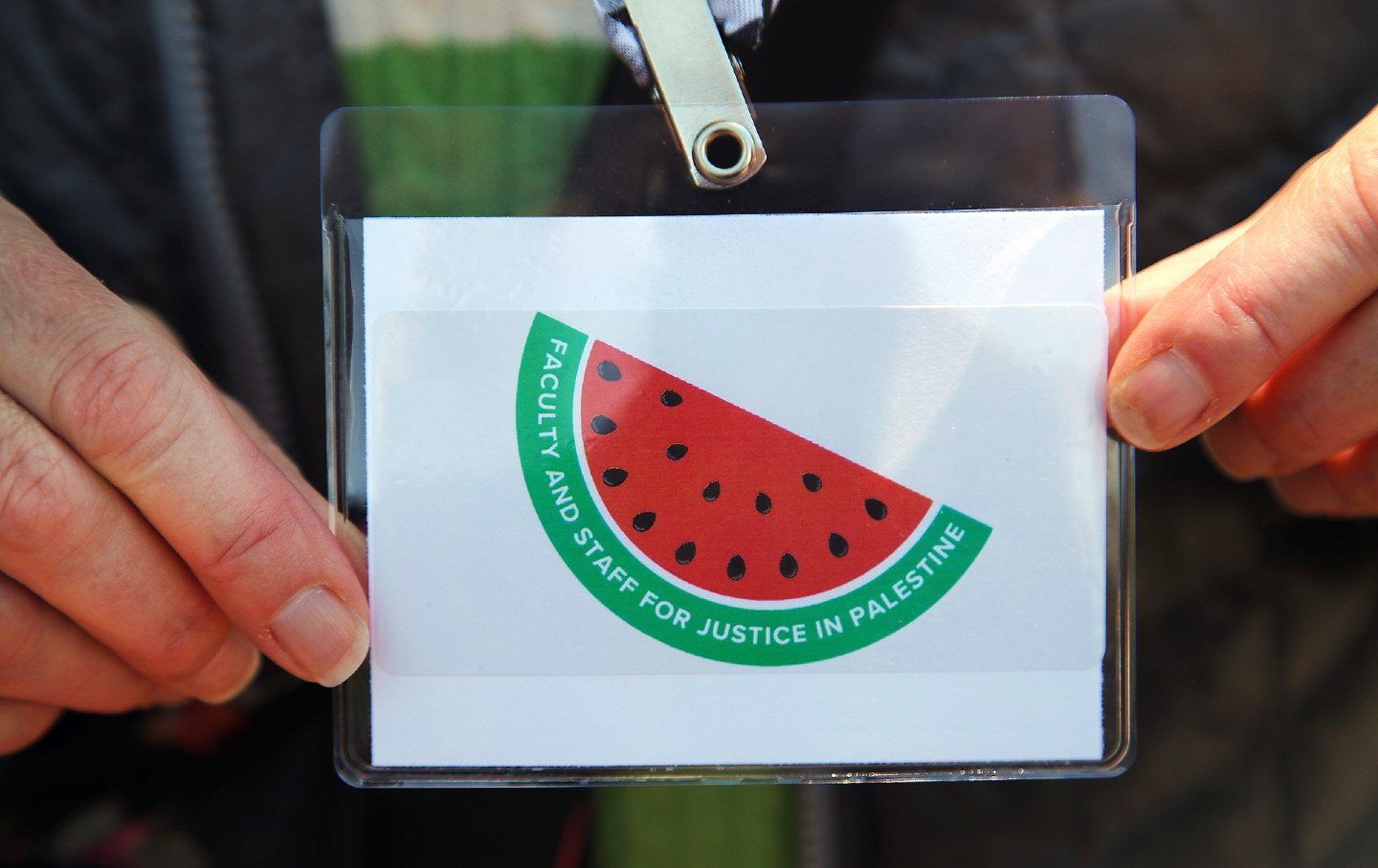
Bosses Are Retaliating Against Workers for Showing Solidarity With Palestinians Bosses Are Retaliating Against Workers for Showing Solidarity With Palestinians
Too many workers are losing their jobs and professional opportunities for expressing pro-Palestinian sentiment. Other are choosing to self-censor amid a climate of fear.

The Women Who Remain in Gaza Will Never Leave Me The Women Who Remain in Gaza Will Never Leave Me
I survived eight terrible months of genocide. Now, I’m in exile—but I can’t stop thinking about the women who have remained.
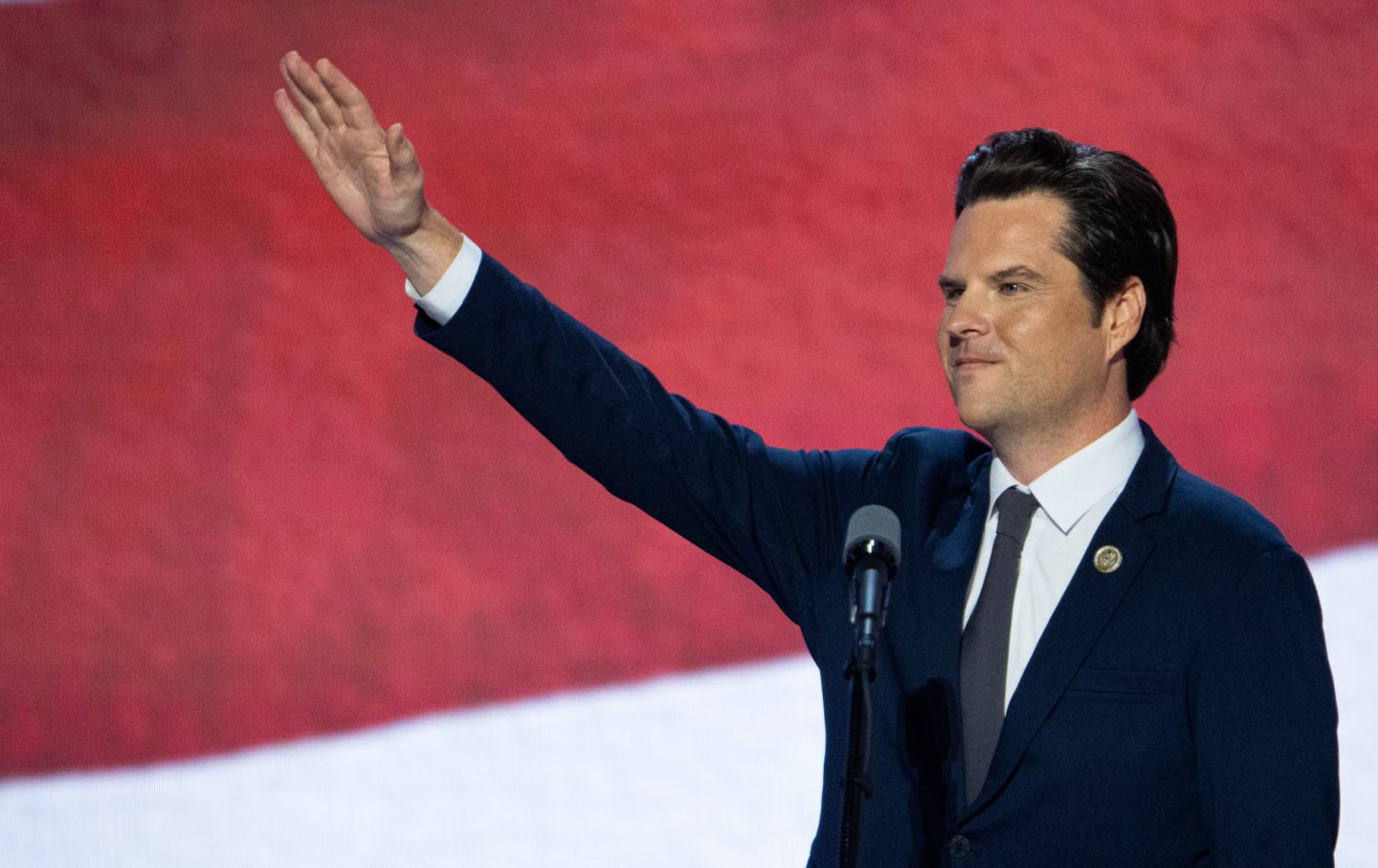
BREAKING: Matt Gaetz Quits, and Journalism Still Matters—a Lot BREAKING: Matt Gaetz Quits, and Journalism Still Matters—a Lot
Forty-five minutes after CNN contacted Trump’s attorney general nominee about additional allegations of sexual misconduct, he was done.

The Red Wave Didn’t Hit Statehouses in This Election The Red Wave Didn’t Hit Statehouses in This Election
State-level Democrats largely held their ground, even scoring key victories in battleground states—and under Trump, that’s going to matter.
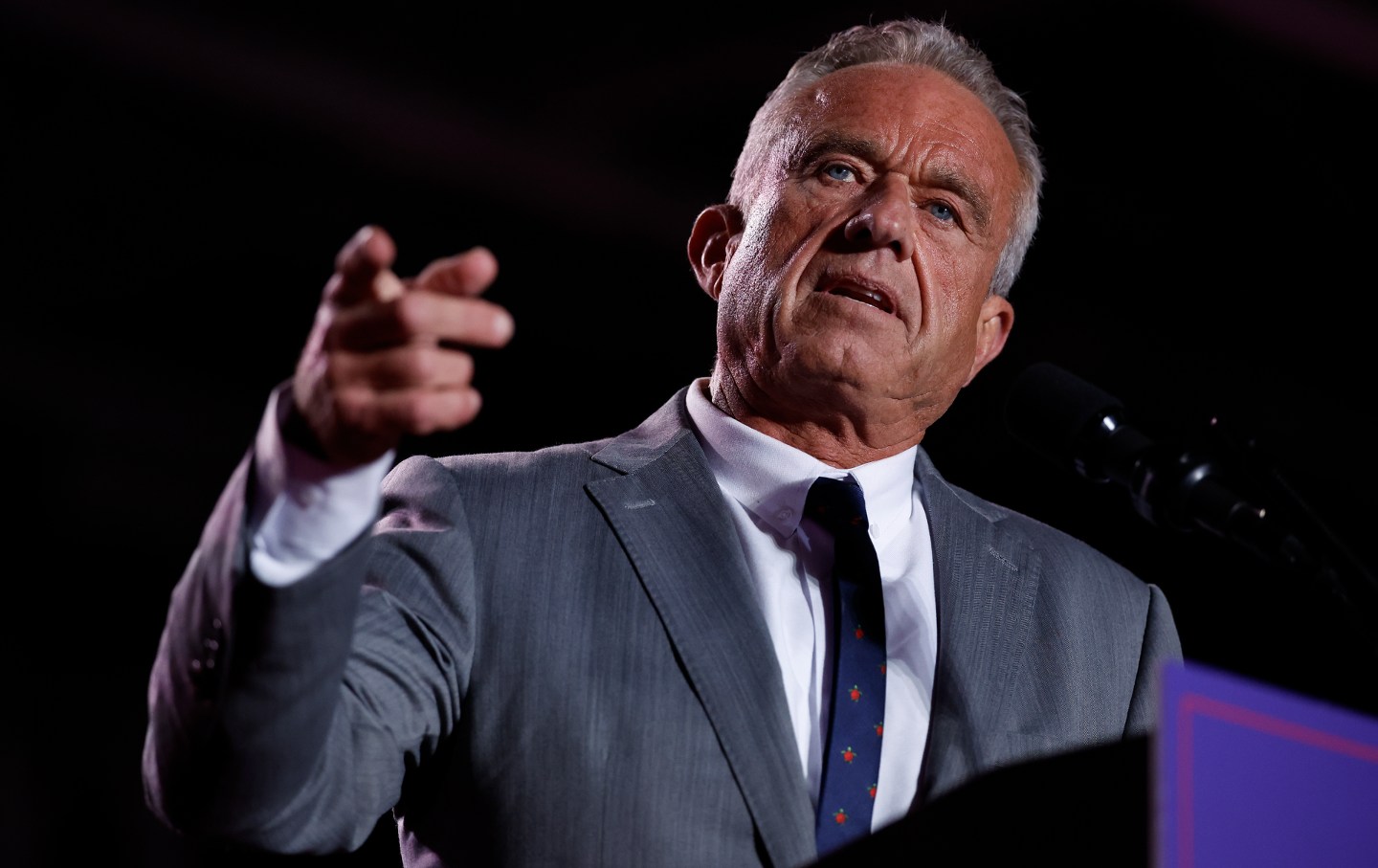
How Nominally Pro-Choice RFK Jr. Can Get Anti-Abortion Groups to Back His HHS Nomination How Nominally Pro-Choice RFK Jr. Can Get Anti-Abortion Groups to Back His HHS Nomination
He can pick a strident abortion opponent like Roger Severino, who wrote the Project 2025 chapter on HHS, as his number two.
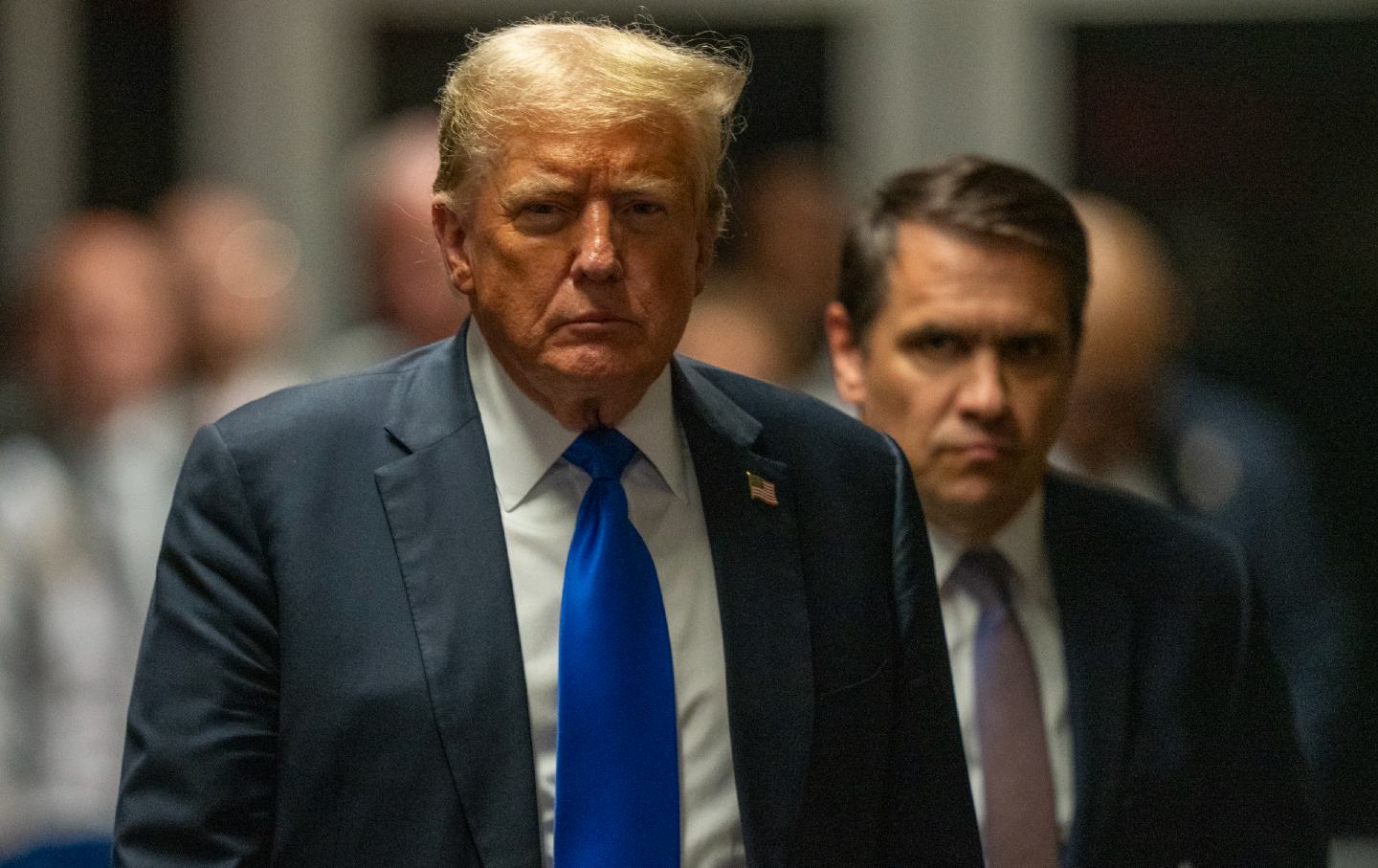
Trump’s Second Presidency Will Only Accelerate America's Imperial Decline Trump’s Second Presidency Will Only Accelerate America's Imperial Decline
Trump is on track to bring a hasty end, silent or otherwise, to an “American Century” of global dominion.


